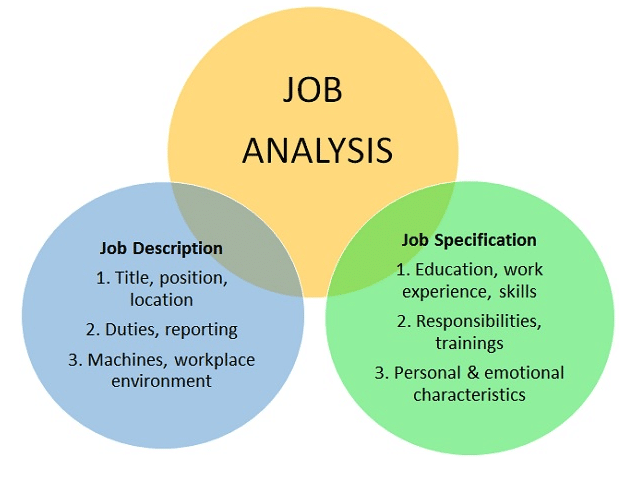In today’s competitive business landscape, organizations strive to hire the best talent who can contribute effectively and thrive in their respective roles. However, identifying the right talent requires a systematic approach that goes beyond superficial impressions and guesswork. This is where the discipline of Industrial-Organizational (I/O) psychology, specifically job analysis, plays a vital role. Job analysis provides a solid foundation for understanding the critical knowledge, skills, abilities, and personality characteristics necessary for success in a role. In this article, we will discuss the importance of job analysis in talent identification and emphasize the need for experienced I/O psychologists to ensure valid links between job requirements and pre-employment assessments.
Job Analysis: A Fundamental Step:
Job analysis serves as a foundational step in the talent acquisition process by thoroughly examining a position’s requirements, duties, responsibilities, and work environment. Its primary goal is to identify the key competencies and attributes that contribute to successful performance in a specific role. By conducting a comprehensive job analysis, organizations gain insights into the specific knowledge, skills, abilities (KSAs), and personality characteristics necessary for superior performance.
Identifying Critical KSAs and Personality Characteristics:
Knowledge: Job analysis allows organizations to identify the specific knowledge domains that are essential for job success. These can range from technical expertise and industry-specific knowledge to general knowledge relevant to the role.
Skills: Job analysis helps in pinpointing the specific skills required for optimal job performance. This includes both hard skills, such as proficiency in programming languages or statistical analysis, and soft skills, such as communication, teamwork, and problem-solving.
Abilities: Abilities refer to the underlying capacities or aptitudes necessary for effectively performing job tasks. Job analysis can help identify critical abilities such as cognitive abilities, emotional intelligence, leadership potential, and adaptability.
Personality Characteristics: Certain personality traits are often linked to job success. By integrating personality assessment into job analysis, organizations can identify the traits that align with the role’s requirements. For example, a customer service position may require individuals with high levels of empathy, patience, and stress tolerance.
The Role of an Experienced I/O Psychologist:
Collaborating with an experienced I/O psychologist is invaluable during the job analysis process. Their expertise ensures that job descriptions are accurate, complete, and aligned with the organization’s goals. An I/O psychologist can:
Conduct Job Analysis: I/O psychologists are skilled in conducting job analysis studies through various methods like interviews, observations, and surveys. They can provide a comprehensive analysis that captures the nuanced demands of the role.
Determine Assessment Validity: A competent I/O psychologist can evaluate and determine the validity of pre-employment assessments for candidate screening. By linking assessments to the identified KSAs and personality characteristics, they ensure the assessments effectively predict job performance.
Tailor Assessments: Working with a test vendor that has a staff of I/O psychologists allows for assessments to be customized to fit specific roles and organizational contexts. I/O psychologists can collaborate with the vendor to ensure assessments measure the critical factors identified through job analysis, resulting in a more accurate evaluation of candidate suitability.
Conclusion:
Job analysis is an essential component of talent acquisition, providing organizations with a deep understanding of the critical KSAs and personality characteristics necessary for success in a role. To ensure accuracy and validity, partnering with an experienced I/O psychologist is crucial. Whether conducting the analysis in-house or working with a test vendor, having the guidance of I/O psychologists ensures that the assessments chosen align with the job requirements and effectively predict performance.
By integrating job analysis with pre-employment assessments, organizations can make informed hiring decisions, increasing the likelihood of finding the right talent and reducing the risk of costly mismatches in the workforce.
References:
Cascio, W. F., & Aguinis, H. (2005). Applied Psychology in Human Resource Management (6th ed.). Pearson Prentice Hall.
Society for Industrial and Organizational Psychology (SIOP). (2018). Principles for the Validation and Use of Personnel Selection Procedures (5th ed.). SIOP.
Schmitt, N., & Chan, D. (2014). Personnel Selection: A Theoretical Approach. Psychology Press.
Gatewood, R. D., Feild, H. S., & Barrick, M. R. (2010). Human Resource Selection. Cengage Learning.

